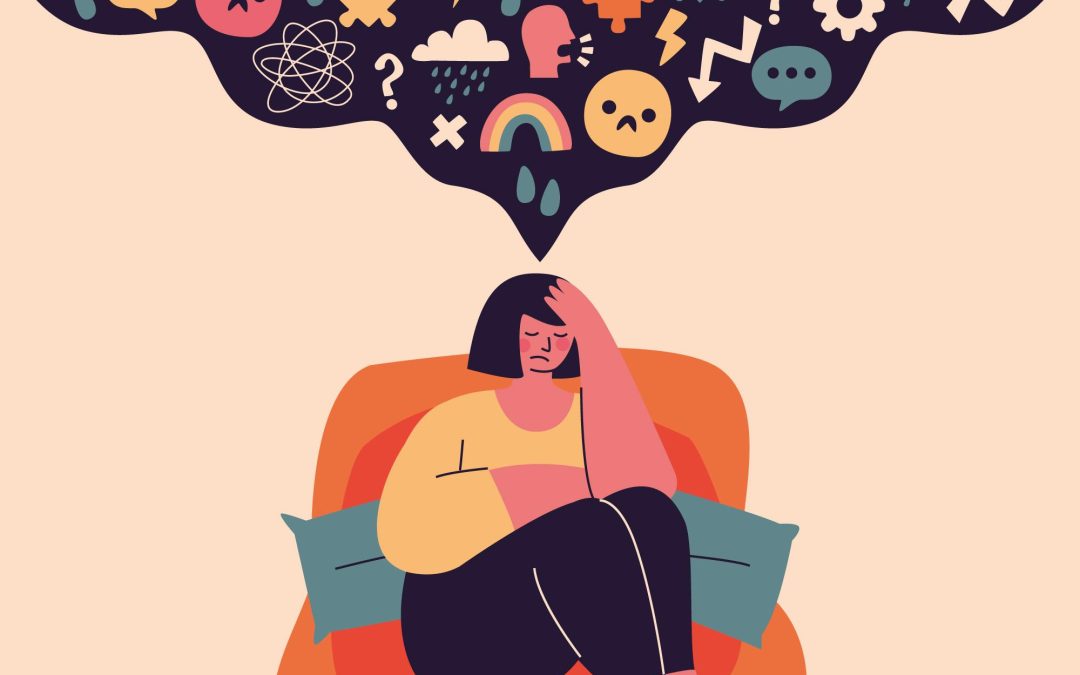Unveiling the complex relationship between our physical health and mental well-being, this article probes into a pertinent question – can an unhealthy gut lead to anxiety? We delve into the intricate labyrinth of the gut-brain axis, exploring the growing body of evidence that suggests our digestive system might play a surprisingly significant role in our emotional landscape.
The Gut-Brain Connection: Anxiety’s Silent Partner
The connection between gut health and anxiety is more than just a gut feeling. It’s not uncommon to experience stomach issues when we’re stressed or anxious; it’s a classic case of gut instinct. Our brain has a direct impact on our digestive system, hence the manifestation of certain gut symptoms like nausea or butterflies when we experience emotional highs and lows. Research even suggests that psychological therapy can improve digestive symptoms more than conventional medical treatment alone. Let’s take a closer look at how the gut-brain connection and gut microbiome interact with anxiety.
Exploring the Gut-Brain Relationship and Microbiome
Our body is controlled largely by our brain and central nervous system. However, the gut boasts its own mini-brain, the enteric nervous system (ENS), the most extensive nerve cell network outside the brain. With the brain and ENS in constant communication, disturbances in one can impact the other. Your gut microbiome plays a key role in these interactions. Substances produced by your gut microbiome, communicated via the vagus nerve, can impact brain functions. Changes in your microbiome can also influence the production of chemical messengers like serotonin, which can alter your mood and brain function.
Enhancing Gut Health to Alleviate Anxiety
The connection between anxiety and gut health revolves around the gut-brain relationship and the role of microorganisms in our digestive system. Emotional distress can release hormones and chemicals into the digestive system, disrupting your gut microbiome. This chemical imbalance can lead to gastrointestinal issues like indigestion, upset stomach, diarrhea, constipation, and nausea.
Several studies underscore the link between gut microbiome, anxiety, and mental health in general. Some suggest that gut inflammation can stress the microbiome, releasing small proteins called cytokines and neurotransmitters, potentially triggering depression and anxiety symptoms. Other studies demonstrate that the gut microbiome influences the development and function of the stress-adaptive hypothalamic-pituitary-adrenal (HPA) axis, which, when dysfunctional, is often associated with anxiety and depressive disorders.
Given the wealth of evidence, it seems plausible to draw a line connecting poor gut health and anxiety symptoms. Studies suggest that improving gut health may also help manage anxiety. Various interventions, including probiotics and dietary adjustments, have shown promising results in alleviating anxiety symptoms by regulating the gut microbiome.
Boosting Gut Health: A Toolkit for Anxiety Management
Probiotics can be obtained through supplements, which, as studies suggest, may help with anxiety symptoms. However, a gut microbiome test can help identify specific probiotics your gut microbiome may be lacking.
Including more fermented foods in your diet, which are rich in probiotics, can potentially reduce anxiety symptoms. Foods high in fiber, plant proteins, and unsaturated fats also contribute to a healthier gut microbiome, reducing inflammation—a known risk factor for anxiety and depression.
Aerobic exercise also promotes both gut and mental health.
Unraveling the Final Thoughts
The exploration into gut bacteria and brain communication is revealing promising avenues for probiotics in the prevention and treatment of depression and anxiety. Profiling gut bacteria could potentially identify individuals at risk for depression and anxiety. Though the current research landscape has begun to illuminate the gut-anxiety connection, much remains to be discovered. For individuals experiencing anxiety symptoms or persistent digestive issues, it’s crucial to consult a healthcare or psychiatric professional who can offer appropriate treatment options and support
Sources
[1] Jenkins, Trisha A., Jason C. D. Nguyen, Kate E. Polglaze, and Paul P. Bertrand. (2016). Influence of Tryptophan and Serotonin on Mood and Cognition with a Possible Role of the Gut-Brain Axis. Nutrients 8(1): 56. https://doi.org/10.3390/nu8010056
[2] Shoubridge, A.P., et al. (2022) The gut microbiome and mental health: advances in research. Mol Psychiatry 27: 1908–1919; https://doi.org/10.1038/s41380-022-01479-w
[3] Clapp, M., Aurora, N., Herrera, L., Bhatia, M., Wilen, E., & Wakefield, S. (2017). Gut microbiota’s effect on mental health: The gut-brain axis. Clinics and practice, 7(4), 987. https://doi.org/10.4081/cp.2017.987
[4] Carra A. Simpson, Carmela Diaz-Arteche, Djamila Eliby, Orli S. Schwartz, Julian G. Simmons, Caitlin S.M. Cowan (2021) The gut microbiota in anxiety and depression – A systematic review, Clin Psychology Rev, 83: 101943; ISSN 0272-7358, https://doi.org/10.1016/j.cpr.2020.101943
[5] Yang B, Wei J, Ju P, et al (2019) Effects of regulating intestinal microbiota on anxiety symptoms: A systematic review. General Psychiatry, 32:e100056. doi: 10.1136/gpsych-2019-100056
[6] Hilimire, M. R., DeVylder, J. E., & Forestell, C. A. (2015). Fermented foods, neuroticism, and social anxiety: An interaction model. Psychiatry research, 228(2), 203–208. https://doi.org/10.1016/j.psychres.2015.04.023
[7] Madison, A., & Kiecolt-Glaser, J. K. (2019). Stress, depression, diet, and the gut microbiota: human-bacteria interactions at the core of psychoneuroimmunology and nutrition. Current opinion in behavioral sciences, 28, 105–110. https://doi.org/10.1016/j.cobeha.2019.01.011
[8] Svensson M, Brundin L, Erhardt S, Hållmarker U, James S and Deierborg T (2021) Physical Activity Is Associated With Lower Long-Term Incidence of Anxiety in a Population-Based, Large-Scale Study. Front. Psychiatry 12:714014. doi: 10.3389/fpsyt.2021.714014
https://www.health.harvard.edu/diseases-and-conditions/the-gut-brain-connection
https://www.webmd.com/digestive-disorders/how-to-improve-your-gut-health-and-mental-health
https://www.bmj.com/company/newsroom/anxiety-might-be-alleviated-by-regulating-gut-bacteria/
https://www.medicalnewstoday.com/articles/gut-health-and-anxiety
https://joinzoe.com/learn/gut-health-and-anxiety
https://www.everydayhealth.com/anxiety-disorders/have-anxiety-heres-what-your-gut-has-to-do-with-it/
https://www.brainsway.com/knowledge-center/gut-health-and-anxiety/






